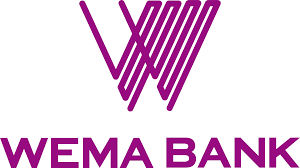Odinaka Anudu and Yakubu Ibrahim
Wema Bank incurred N8.067 billion in court cases as at September 2023 and also lost N239.920 million to fraud and burglary in the nine-month to September 2023.
This is according to the bank’s financial statement recently released to the Nigerian Exchange Group.
However, the litigation claims represent only 3.2 percent from N8.331 billion reported in December 2022.
Similarly, the fraud and burglary losses in the third quarter of 2023 represents a 73 percent reduction from a loss totalling N880.154 million recorded in the corresponding period of 2022.
This means that Wema Bank succeeded in cutting down its fraud cases within the period. Analysts attribute it to increased technology expenditure, which rose by 31 percent from N1.421 billion in September 2022 to N1.856 billion by September 2023.
“Investment in technology is critical for banks because they are targeted by fraudsters who have cliques all over the world. If you do not spend in technology, you will spend time in courts with depositors,” said a Lagos-based IT expert, Mr Tobe Iloani.
Fraud rising in banks
Fraud and court cases are rising in Nigerian deposit money banks.
As per fraud, Economy Post recently reported that Access Bank lost N5.46 billion to fraudsters and forgers in the first six months of 2023. This represented 355 percent increase from N1.2 billion lost by the bank to fraudsters and forgers in the corresponding period of 2022.
In 2020, eight Nigerian banks lost N1.9 billion to fraudsters, Punch reported.
The cases ranged from impersonation, outright theft, Automated Teller Machine fraud to Internet bank fraud and cheque theft.

Polaris and Zenith lost N938.4 million and N360 million respectively to fraudsters, while Access Bank lost N138.1 million.
While Sterling Bank lost N132.23 million to fraudsters, Wema and Fidelity recorded N105.4 million and N22.2 million losses respectively. Also, Union Bank lost N1.5 million to the criminals.
A recent study by Surfshark, an Amsterdam-based cybersecurity firm, showed that Nigeria was the 32nd most breached nation in the first quarter of 2023, as reported by Techcabal.
The report noted that Nigeria recorded 82,000 leaked accounts between January and March 2023, representing a 64 percent jump from the result of the previous quarter.
A US Federal Bureau of Investigation (FBI) 2020 report had ranked Nigeria as the 16th nation most affected by internet crimes. The report said Nigeria received 443 complaints relating to internet crimes in 2020, The Cable reported.
Hitach Solutions, a global Microsoft integrator, said: “To successfully combat fraud, banks must beat cybercriminals at their own game, which requires making advanced technology part of their first line of defense.”
It advised banks to use artificial intelligence, biometric authentication, multi-factor authentication, and advanced analystics.
It also counselled banks to monitor transactions in real time, create database of known threats, educate banking customers, while hosting regular awareness training for the staff members.
According to Mr Iloani, earlier quoted, “There is a need for banks to use the multi-level approach. The use of AI is most critical now because fraudsters are innovating. Banks across the world use machine learning, and Nigerian banks must adopt this approach too.”
Court cases
Banks make provisions for court cases, which are now on the rise.
According to Wema Bank, “These litigations arose in the normal course of business and are being contested by the Bank. The Directors, having sought advice of professional counsel, are of the opinion that
no significant additional liability will crystallise from these claims; other than as recognised in these financial.”
Economy Post earlier reported that aggrieved customers and parties initiated 932 court cases against Guaranty Trust Bank (GTB), also known as Guaranty Trust Holding Company PLC (GTCO), in the first six months of 2023.
Economy Post learnt from the bank’s half-year 2023 financial statements released to the Nigeria Exchange Group that the litigants were demanding N595.9 billion and $24.05 million in damages and refunds from the Tier-1 bank.
There are many reasons why either banks or customers initiate court cases. A lawyer, Dr Sam Oyigbo, explained that fraud and violations of contractual terms could lead to litigations.
“Banks and customers have contractual relationships. If there is a breach of contract or inability to resolve through alternative resolutions, either of the party can go to court,” he said.
“If you prepare a cheque and the bank fails to honour it, you can go to court. If you wrongfully make a payment, you can go to court to get an order of reversal. The documents customers sign at banks are very critical. So, customers must read them carefully before appending their names. However, when something happens between customers and banks, the court will look at circumstances surrounding it, irrespective of the documents signed at the bank.
“Similarly, the banks can sue their customers if they fail to repay loans. They can also do so when there is a breach of agreement or someone tries to bring a bank into disrepute,” Oyigbo further said.
Another lawyer, Ms Deborah Nyang, explained that some banks were facing court cases from customers due to loss of funds to fraudsters.
“This happens especially when there is loss of money in the bank account of someone who does not have an ATM card or does not do online banking. Should you lose your money through online sources, you can sue the bank. Also, the banks could sue customers for beach of agreement, fraudulent practices or activities that could cost the bank some good will,” she added.
A financial analyst, Mr Ike Abununo, however, urged banks to begin to resolve matters quickly with customers, stressing that why several cases would go to court was because banks were failing to attend to customer complaints.
“If a bank fails to attend to a customer’s complaints or does not act in a manner that shows that it cares, people will be forced to litigate. Banks must change their strategies and learn to solve customer issues as quickly as possible. They must remember that without customers, there will be no bank.”
Wema Bank refused to speak
Wema Bank’s spokesperson, Ms Mabel Adeteye, did not respond to Economy Post‘s inquiries via WhatsApp messages seeking clarifications on the bank’s fraud issues.
CULLED FROM Economy Post

























